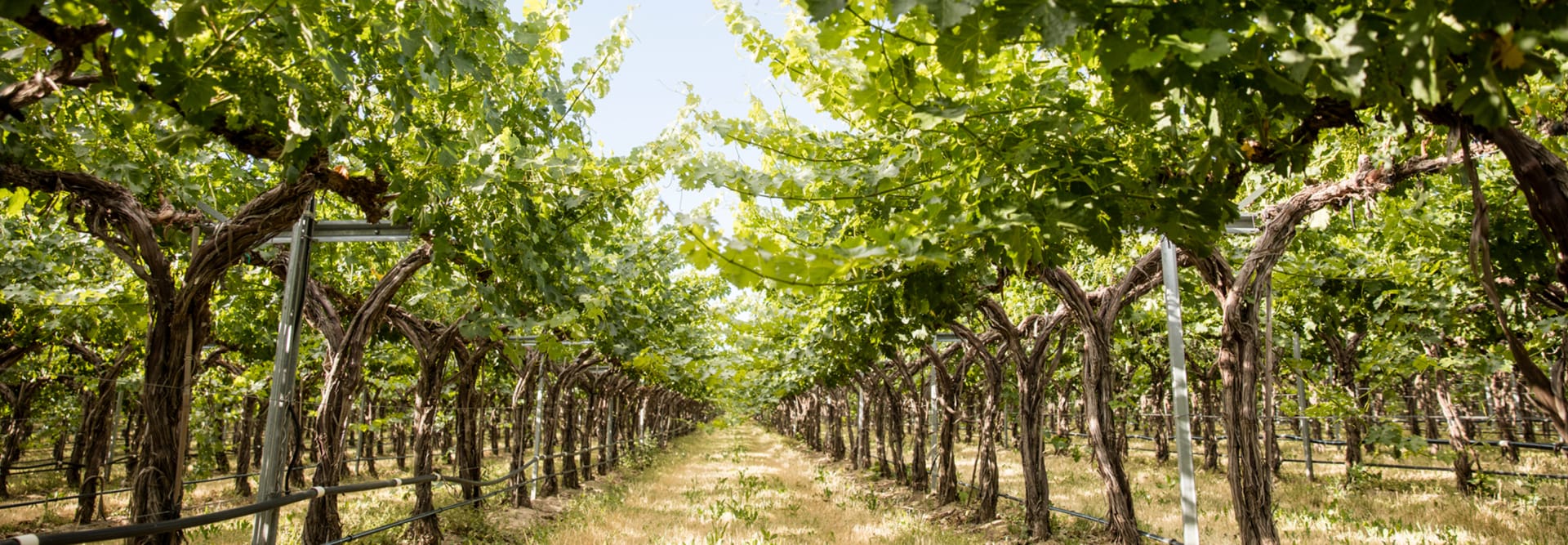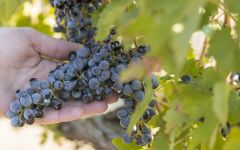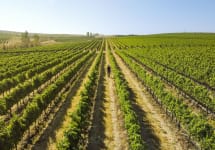Seven Hills Winery Ciel du Cheval Vintage Red 2013
-
Wine
Enthusiast -
Robert
Parker



Product Details
Your Rating
Somm Note
Winemaker Notes
Professional Ratings
-
Wine Enthusiast
This is a blend of Cabernet Sauvignon (42%), Merlot (30%), Petit Verdot (14%) and Cabernet Franc. Complex aromas of toast, green herbs, fig, citrus, flowers and clove lead to rich but reserved flavors, with the tannins seeming bunched up. Give them time to stretch out.
-
Robert Parker's Wine Advocate
My favorite of the 2013s was the 2013 Ciel du Cheval Vineyard, which checks in as a blend of 42% Cabernet Sauvignon, 30% Merlot, 14% Petit Verdot and the rest Cabernet Franc, aged in 40% new oak. One of the textured, concentrated and layered releases, it has lots of oak current showing, as well as notes of charred earth, black raspberry, currants and vanilla. Medium to full-bodied, balanced, with ripe, yet certainly present tannin, give bottles 2-4 years of cellaring and enjoy over the following decade.
Other Vintages
2014-
Wine
Enthusiast
-
Wine
Enthusiast
-
Wine &
Spirits -
Wine
Enthusiast -
Wine
Spectator -
Robert
Parker
-
Wine
Enthusiast -
Wine
Spectator
-
Wine
Spectator






Established in 1988, Seven Hills Winery is proud to be among the founding estates of Walla Walla Valley. As pioneers who first championed the region, the winery’s heritage is built on longstanding relationships with the most renowned growers in the Northwest and a deep knowledge of the land. Their focus is crafting Merlot and Cabernet Sauvignon-based wines that authentically reflect their places of origin.
Born to a farming family in Eastern Washington, Founder Casey McClellan learned about agriculture at a young age. Later, Casey and his wife, Vicky, began to cultivate an interest in wine and developed a long term vision to make wine from the family farm in Walla Walla Valley. They drew further inspiration during a European cycling trip through wine country, where they experienced wine as an integral foundation to these communities and an important, vital part of small town agricultural life.
As proprietors of one of the area’s first vineyards, the efforts of Seven Hills Winery have helped strengthen a community that values environmental stewardship to protect the future. For the past 15 years, they have practiced sustainable agriculture in order to be responsible guardians of the land, and currently hold LIVE and Salmon Safe certifications for their estate SHW Founding Vineyard.
Seven Hills Winery has always thrived to protect the environment and their communities. It has become clear to us that the emission of Green House Gases (GHG) not only is the biggest environmental threat, but also that the majority of environmental advances are tied to their ability to emit less GHG. They have embarked on a fundamental transformation of how they grow grapes and make wines and have joined international organizations such as the Porto Protocol and the International Wineries for Climate Action (IWCA). They have committed to reduce their GHG emissions by 50% by 2030 and 100% by 2050.

One of the world’s most classic and popular styles of red wine, Bordeaux-inspired blends have spread from their homeland in France to nearly every corner of the New World. Typically based on either Cabernet Sauvignon or Merlot and supported by Cabernet Franc, Malbec and Petit Verdot, the best of these are densely hued, fragrant, full of fruit and boast a structure that begs for cellar time. Somm Secret—Blends from Bordeaux are generally earthier compared to those from the New World, which tend to be fruit-dominant.

A coveted source of top quality red grapes among premier Washington producers, the Red Mountain AVA is actually the smallest appellation in the state. As its name might suggest, it is actually neither a mountain nor is it composed of red earth. Instead the appellation is an anticline of the Yakima fold belt, a series of geologic folds that define a number of viticultural regions in the surrounding area. It is on the eastern edge of Yakima Valley with slopes facing southwest towards the Yakima River, ideal for the ripening of grapes. The area’s springtime proliferation of cheatgrass, which has a reddish color, actually gives the area the name, "Red" Mountain.
Red Mountain produces some of the most mineral-driven, tannic and age-worthy red wines of Washington and there are a few reasons for this. It is just about the hottest appellation with normal growing season temperatures commonly reaching above 90F. The soil is particularly poor in nutrients and has a high pH, which results in significantly smaller berry sizes compared to varietal norms. The low juice to skin ratio in smaller berries combined with the strong, dry summer winds, leads to higher tannin levels in Red Mountain grapes.
The most common red grape varieties here are Cabernet Sauvignon, Merlot, Cabernet Franc and Syrah, among others. Limited white varieties are grown, namely Sauvignon blanc.
The reds of the area tend to express dark black and blue fruit, deep concentration, complex textures, high levels of tannins and as previously noted, have good aging capabilities.
